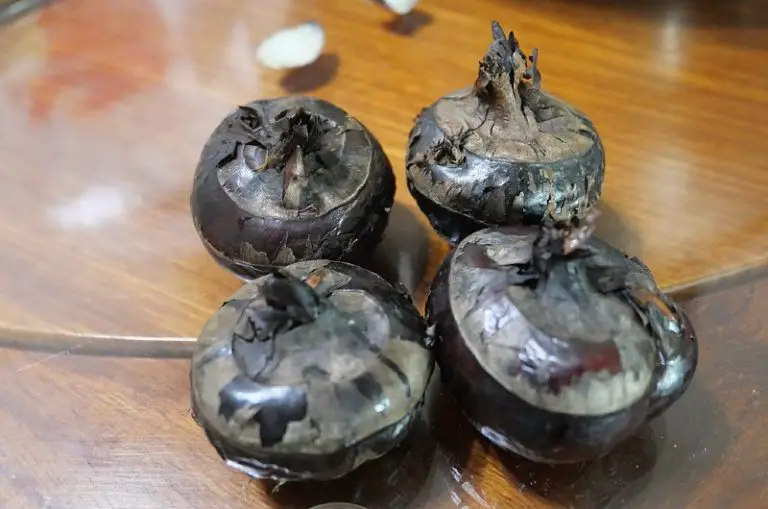Can You Freeze Blue Cheese?
Blue cheese is not the most popular variety of cheese, but people love it because of its unique sharp and salty flavor. In addition, the cultures of the edible mold Penicillium give this cheese a distinctive greenish-blue hue and an odd odor that separates it from other cheese.
It is also among the most expensive varieties of cheese available on the market. So, you can feel reluctant to waste it if you have some excess leftovers after the party last night. So, how do you preserve blue cheese, especially as dairy products do not have a good reputation for freezing well? So, can you freeze blue cheese? Read on to know more.
Can You Freeze Blue Cheese?
Blue cheese, also known as bleu cheese, can be frozen, but it is not a bright idea to freeze it. Freezing blue cheese can change its texture and makes it less creamy with slight distortion in its taste.
So, it does not go well with dishes that depend on their texture. For example, it is not advisable to add defrosted blue cheese to the salad. At the same time, defrosted blue cheese works well with cooked dishes, especially those that do not depend on its creaminess.
So, we can freeze blue cheese, but a lot depends on the recipe you plan with the cheese after the defrosting process.
How Do You Freeze Blue Cheese?
Freezing blue cheese is not a problem, but deciding how to use it after defrosting is. So, let us freeze the blue cheese first.
Step 1 – Cut And Portion The Blue Cheese
You can freeze blue cheese as an entire block. However, we recommend cutting or slicing it into pieces you can consume. So, you can cut the cheese slab into small cubes or thin slices, depending on your preference. The advantage of slicing it into small pieces is that it reduces wastage. You do not have to defrost the entire block when you decide to use the cheese. Cutting and slicing allow for removing and defrosting the required quantity of cheese.
Step 2 – Packaging The Cheese Is Crucial
If you decide to freeze the entire cheese block, you can wrap it in the original package and place it inside the freezer bag for added protection. If you choose to cut the slab into large pieces, you can wrap the individual elements in aluminum foil or a cling wrap. We recommend skipping the wrap if you plan to freeze blue cheese for a month or two. Instead, put the cheese pieces in a freezer bag for freezing well.
If you cut the cheese slab into small cubes, we advise placing them on a cookie sheet inside a freezer bag. Flash freeze the cubes until they become solid. Then, you can transfer the frozen cheese cubes into a freezer bag for regular freezing. Collect the grated pieces in a freezer bag for freezing if you grate the cheese.
Step 3 – Finalize The Packaging And Freeze The Blue Cheese
Vacuuming the excess air from the freezer bag is crucial before placing it inside the freezer for freezing. If you are worried that the cheese pieces can get squashed, place the freezer bag inside an airtight container for freezing. Finally, note the date and time of freezing on the freezer bag and set it inside the freezer to freeze.
How Long Does The Frozen Blue Cheese Last In The Freezer?
Technically, frozen blue cheese can remain fresh in the freezer for six to 12 months.
How Do You Defrost Frozen Blue Cheese?
Defrosting blue cheese is not an issue. You can transfer the frozen blue cheese packets from the freezer to the fridge and allow them to thaw naturally. However, you need to start the defrosting process overnight if you plan to use the cheese the following morning. If you have a significant block of cheese to thaw, it can take more than 24 hours to two days to defrost thoroughly.
But, if you are in haste and cannot afford to spend time with the natural defrosting process, you can thaw the frozen blue cheese in cold water. Alternatively, you can directly transfer the frozen cheese to the dish you prepare on the stovetop.
Generally, we do not recommend the manual defrosting process because it can drastically affect the blue cheese’s texture and flavor. But, it should not matter much if you cook or bake the dishes immediately.
While we recommend the natural thawing process, we advise cutting the cheese into small pieces before freezing. It saves a lot of time required for defrosting.
How Do You Use The Defrosted Blue Cheese?
You can prepare various dishes using defrosted blue cheese. They include grilled sandwiches, toppings, sauce, soups, stews, and casseroles. However, we strongly recommend consuming the defrosted blue cheese within a day or two to get the best results.
How Long Does Blue Cheese Last?
Blue cheese lasts comparatively longer than other contemporary cheese. For example, it can last for a year if you freeze a wedge, whereas crumbled cheese should not last more than two weeks.
What Are The Signs To Watch For In Spoiled Blue Cheese?
It is better to check the blue cheese for spoiling signs before consuming it.
- If the cheese flesh turns green or pink and loses its texture and shape, the cheese gradually becomes bad.
- Spoilt blue cheese gives off an ammonia-like smell that can be offensive.
- Mold formation indicates that the cheese has spoilt.
You should not risk your health eating expired or spoilt cheese. The correct option is to discard them.
Can You Refreeze Blue Cheese?
We do not recommend refreezing blue cheese because the damage to its texture, flavor, and taste can be irreparable.
How Long Does The Blue Cheese Last In The Fridge?
Blue cheese can last for four weeks in the fridge if you wrap it perfectly and store it. The taste remains fresh comfortably for four weeks. However, if you wish to keep it for extended periods, freezing it is the only option available.
Final Thoughts
Blue cheese is too expensive for anyone to waste. So, people always have questions about the proper method of storing blue cheese. Though it does not freeze ideally, you can freeze blue cheese by taking precautions and using the correct procedure.



